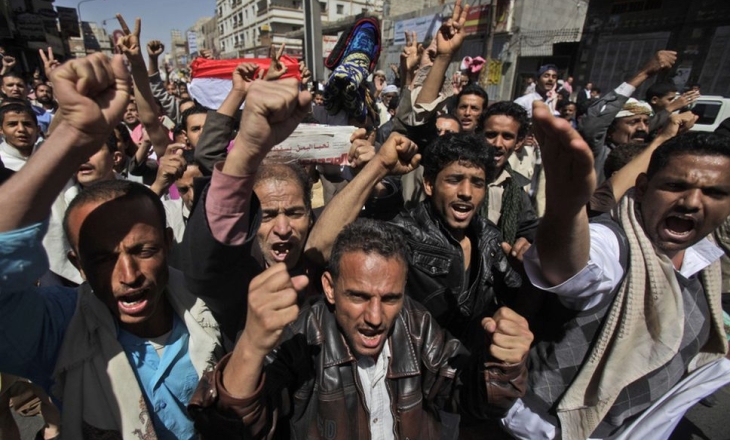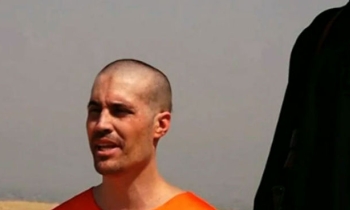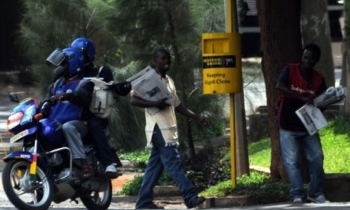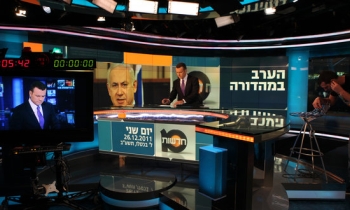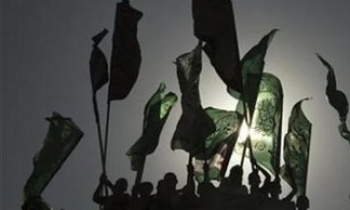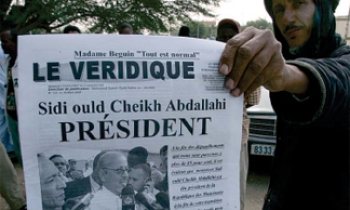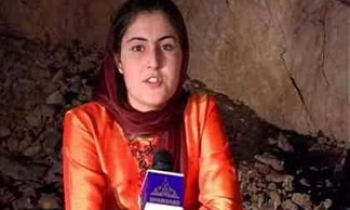Paris-based press freedom group Reporters sans Frontières (RSF) is very worried about the fate of Stéphane Lehr, an experienced French freelance photographer working for Polaris Images, who went missing early Sunday afternoon shortly after arriving in Benghazi with a French TV crew.
The head of Polaris Images, Jean-Pierre Pappis, said the last contact with Lehr was a message received at 7 a.m. New York time (1 p.m. in Libya). “He sent us an email saying: ‘I have just arrived in Benghazi. I am trying to leave this afternoon for the front. Nothing is certain.’” One of Lehr’s fellow journalists said he set off in the direction of Ajdabiya, a town on the coast 160 km south of Benghazi.
Lehr’s case brings the number of journalists currently missing in Libya to four. Agence France-Presse previously said it had received no word from two of its reporters – Dave Clark, 38, and Roberto Schmidt, 45 – since the evening of March 18, when they were near the eastern city of Tobruk.
In a statement, AFP reported that they had “said in an email on Friday evening that they intended to travel some 30 km from Tobruk on Saturday morning to meet opponents of Libyan leader Muammar Gaddafi’s regime and interview refugees fleeing the fighting.” Getty Images photographer Joe Raedle was travelling with them.
Four Al-Jazeera journalists who were arrested near the western town of Zawiya are meanwhile still being held by pro-Gaddafi forces. RSF is also without any news of six Libyan journalists.
Libyan strongman Muammar Gaddafi and his allies have not stopped their abuses in response to the UN Security Council resolution of March 17 authorising the use of force to protect civilians. Foreign journalists and their Libyan colleagues continue to be targeted in both the east and the west of the country. Seven journalists are currently missing while a Libyan blogger was killed by a sniper on March 19 in Benghazi. RSF urged the Libyan authorities to end their violence against all journalists.
The Libyan blogger and journalist who was shot on March 19 was Mohamed Al-Nabbous, also known as Mo. He was providing live commentary on developments when he was killed. After the Internet was blocked in Libya, he launched his own TV station, Libya Al-Hurra, which broadcast by satellite. He was the second journalist to be killed in Libya since the start of the fighting. Al-Jazeera cameraman Ali Hassan Al-Jaber was fatally shot in an ambush as he was returning to Benghazi on March 12. A colleague was injured in the same incident.
Al-Jazeera reported on March 19 that four of its journalists were arrested by pro-Gaddafi forces a week ago. The four – Mauritanian reporter Ahmed Vall Ould el-Dine, Tunisian reporter Lotfi Messaoudi, Norwegian photographer Ammar Al-Hamdane and British photographer Kamel Ataloua – had entered the country across the Tunisian border and were covering the fighting between rebels and government forces in Zawiya, to the west of the capital.
Agence France-Presse said it has received no word from two of its reporters – Dave Clark and Roberto Schmidt – since the evening of March 18, when they were near the eastern city of Tobruk. In a statement, AFP reported that they had “said in an email on Friday evening that they intended to travel some 30 km from Tobruk on Saturday morning to meet opponents of Libyan leader Muammar Gaddafi’s regime and interview refugees fleeing the fighting.” Getty Images photographer Joe Raedle was travelling with them.
The four New York Times journalists who were arrested on March 15 have been released. They are currently at the Turkish embassy in Tripoli and were due to leave the country in the next few hours via Tunisia. According to the Committee to Protect Journalists, there has been no work since the start of the uprising from six Libyan journalists who are known critics of the government. The CPJ said it is rumoured that they are currently being held by pro-Gaddafi forces.
The Yemeni authorities ordered Al-Jazeera journalists Ahmed Zidan and Abdulhaq Saddah to leave the country on March 19 on the grounds that they were working illegally in Yemen and were inciting violence. An information ministry official told the government news agency Saba that they had “provoked the Yemeni people” by their coverage of the demonstrations in Yemen in recent weeks. The authorities had confiscated transmission equipment from Al-Jazeera and Al-Arabiya on March 11 on the grounds that their coverage of protests in the south of the country was biased.
The deportation order came one day after the massacre in Sana'a’s Change Square in which 52 people were killed, including photographer Jamal Al-Sharabi of the independent daily Al-Masdar, and 126 people were wounded.
Six other foreign journalists were deported a week ago. Four of them were arrested in Sana'a and expelled on March 14. They were Oliver Holmes, a Briton who strings for the Wall Street Journal and Time, Portia Walker, a Briton who strings for the Washington Post, Haley Sweetland Edwards, an American who writes for the Los Angeles Times and AOL News, and Joshua Maricich, an American who writes for various media including the Yemen Times.
The other two – Patrick Symmes, a US journalist working for Outside magazine, and Italian photographer Marco Di Lauro – were detained on arrival at Sana'a airport on March 12 after visiting the Yemeni island of Socotra and were deported the same day.
People began staging sit-ins, marches and demonstrations to demand more freedom in various parts of the country on March 15, defying the state of emergency that has been in effect since 1963. The authorities have used violence to disperse these protests and have arrested demonstrators arbitrarily. They have also stepped up their restrictions on journalists, in many cases denying them access to the sites of the protests.
Several international news agencies were prevented from covering the demonstrations that have been taking place since March 18 in the southern city of Deraa (near the Jordanian border), where the authorities fired at the protesters. According to Human Rights Watch, five people were killed.
RSF has learnt that the journalist, poet and novelist Mohammed Dibo was arrested on the night of March 18 at his home in Al-Annazah, in the northwestern city of Baniyas, where demonstrations were held earlier in the day to demand reforms. Dibo writes for various newspapers including Jordan’s Al-Dustour and many news websites such as Al-Waan (run by the Association of Rational Arabs), Bab el Moutawasset (MediterraneanGate.net), which covers the various cultures of the Mediterranean basin, Lamp Of Freedom (http://lampoffreedom.com/) and Shukumaku (http://www.shukumaku.com/Default.php).
Mazen Darwich, the founder of the Syrian Centre for Media and Free Expression, was arrested on March 16 while attending a peaceful sit-in outside the interior ministry in Damascus as an observer. He was later released.
Ali Abdulemam, a blogger who was freed on February 22 after several months in prison, was arrested again on March 17 amid a continuing crackdown on human rights activists. After being set free again, he went into hiding to avoid further arrest. The BBC said his wife, who was very outspoken during his months in detention, is now refusing to give interviews for fear of reprisals. Abdulemam was one of the nominees for this year’s Netizen Prize, which RSF awards with support from Google. The prize went to the Tunisian website Nawaat.
Abdeljalil Al-Singace, a blogger who like Abdulemam and 21 other human rights activists and government opponents was detained from September to February, was also reportedly arrested again on March 17. The head of the pro-democracy and civil liberties movement Al Haq, Singace was previously arrested in 2009 for allegedly trying to destabilise the government because he used his blog (http://alsingace.katib.org) to denounce the deplorable state of civil liberties and discrimination against Bahrain’s Shiite population.
Nabeel Rajab, the head of the Bahrain Centre for Human Rights, was abducted from his home at about 1:30 a.m. Sunday by about 40 individuals who threatened him and beat him before finally releasing him several hours later. Rajab had been giving interviews to international news media about the government’s use of violence to disperse protests and indiscriminate killings by the armed forces.
CBS journalist Toula Vlahou was travelling in a car with a colleague on March 19 when riot police fired on them using shotgun pellets. Watch the video in which she tried to get an explanation from foreign minister Sheikh Khalid ibn Ahmad Al Khalifa.

